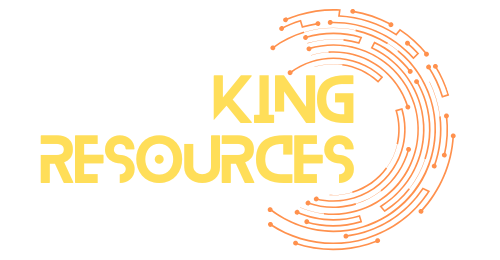When it comes to housing, the age-old debate of buying versus renting often leaves people scratching their heads. Should one commit to a mortgage or enjoy the freedom of a rental agreement? It’s like choosing between a cozy blanket and a free-spirited adventure—both have their perks, but only one leads to a lifetime of equity and potential home-cooked meals in a kitchen that’s actually yours!
Table of Contents
ToggleOverview of Buying vs Renting
Buying a home provides stability. Homeowners often experience the advantage of building equity over time. This accumulation of wealth can be significant, especially in appreciating markets. Renting, on the other hand, grants flexibility. Renters can easily relocate due to changes in job or lifestyle without the burden of selling a property.
Costs differ between the two options. Upfront expenses for homebuyers commonly include down payments and closing costs, while renters typically face security deposits and the first month’s rent. Monthly mortgage payments can also include property taxes and homeowner’s insurance, while tenants usually only pay rent and utilities.
Tax benefits stand out for buyers. Homeownership allows deductions on mortgage interest and property taxes, which can lessen taxable income. Renters lack these financial incentives, impacting total savings.
Lifestyle preferences play a crucial role. Some people enjoy customization options associated with ownership. This allows for renovations and personal touches that renters may not pursue due to restrictions. Conversely, many renters appreciate the convenience of maintenance-free living. Property managers handle repairs and upkeep, eliminating additional responsibilities.
Market conditions vary. In a seller’s market, buying might be less favorable due to higher prices and competition. Conversely, renters can take advantage of lower asking prices in a buyer’s market. Both options offer distinct advantages, making the decision heavily reliant on individual needs and circumstances.
Financial Considerations

Financial factors play a crucial role in deciding whether to buy or rent a home. Understanding the costs associated with each option enables individuals to make informed decisions.
Initial Costs of Buying
Homebuyers must prepare for significant upfront expenses. A down payment typically ranges from 3% to 20% of the home’s purchase price, affecting the overall financial commitment. Closing costs often add another 2% to 5%, encompassing fees for appraisals, inspections, and loan origination. While purchasing entails these initial financial expectations, renters mainly pay a security deposit and the first month’s rent upfront. This stark contrast highlights how buying requires more immediate financial liquidity compared to renting.
Monthly Expenses Comparison
Monthly expenses differ significantly between homeowners and renters. Mortgage payments consist of principal and interest, with taxes and insurance often included in the monthly mortgage payment, adding to the total cost. Homeowners face additional bills for maintenance and unexpected repairs, which can vary greatly. Renters enjoy predictable monthly payments, as landlords typically handle maintenance costs. While renters may experience annual rent increases, homeowners may benefit from fixed-rate mortgages, allowing for stable monthly payments over time. These considerations directly influence budget planning and financial stability in the long term.
Flexibility and Commitment
The decision to buy or rent significantly affects flexibility and commitment levels. Renting offers immediate mobility, while buying often entails a long-term commitment.
Long-Term Stability of Buying
Buying a home provides long-term stability. Homeowners secure a fixed mortgage rate, which guarantees predictability in monthly payments. They also gain equity with every mortgage payment made, turning their home into a financial asset over time. Market appreciation can further increase the property’s value. With no tenancy agreements to worry about, owners enjoy the freedom to customize their living spaces. They can make renovations, landscaping changes, and personalizations without facing landlord restrictions. Such stability encourages investment in the community and creates a sense of belonging.
Mobility and Freedom of Renting
Renters experience significant mobility. Changes in personal circumstances or job opportunities become easier to navigate when leasing an apartment or home. Renting eliminates the concerns of property maintenance, allowing individuals to shift their focus elsewhere. Typically, leases last one year, providing flexibility to relocate without a lengthy selling process. They also avoid significant upfront costs associated with buying, such as down payments and closing costs. Monthly rental payments typically remain stable, allowing for straightforward budgeting. In dynamic markets, renters can adapt quickly to changing locations, responding to job offers or lifestyle shifts.
Investment Potential
Investment potential significantly differentiates buying a home from renting one. Homeownership cultivates financial security and long-term gains.
Building Equity Through Buying
Building equity through homeownership appeals to many individuals. Each mortgage payment contributes towards ownership instead of rent without returns. Over time, this gradual investment can translate into substantial wealth accumulation. Properties in appreciating markets often yield even greater equity growth. Long-term homeowners experience property value increases, further enhancing their financial stability. This equity can serve as a resource for future investments or significant life expenses like education or retirement.
Opportunities for Wealth Creation
Opportunities for wealth creation arise through real estate ownership. Investing in a home can leverage appreciation trends, providing substantial returns. Homeowners enjoy tax benefits such as deductions on mortgage interest and property taxes, which renters cannot access. Properties can generate rental income if circumstances permit, adding an additional stream of revenue. Significant market appreciation over time may lead to profitable resale opportunities, making homeownership an attractive financial strategy. Utilizing home equity through refinancing or home equity loans can fuel further investments, facilitating wealth diversification.
Lifestyle Factors
Lifestyle choices significantly impact the decision to buy or rent a home. Personal preferences related to space, control, and maintenance responsibilities shape these choices.
Personalization and Control in Buying
Homeownership provides unparalleled opportunities for personalization. Owners can modify their spaces to fit unique tastes, whether through renovations or simple decor changes. Investing in a home allows for customizing features such as kitchens, landscaping, and room layouts. Freedom stems from having the autonomy to make these changes without consulting a landlord. Long-term stability complements this flexibility, as homeowners often feel more emotionally invested in their properties. By creating a personalized environment, they can enhance their sense of belonging and community connection.
Maintenance Responsibilities in Renting
Renting comes with distinct advantages concerning maintenance responsibilities. Landlords typically manage repairs and upkeep, allowing renters to enjoy a hassle-free living experience. This arrangement provides immediate assistance for unexpected issues like plumbing or electrical problems. Renters benefit from predictable monthly expenses without the burden of repairing roofs or dealing with appliance breakdowns. Flexibility remains a priority for many renters, as they can focus on enjoying their living space rather than worrying about maintenance. Living in a maintenance-free environment offers peace of mind while allowing time for personal pursuits.
Deciding between buying and renting is a personal journey that hinges on individual priorities and financial circumstances. Homeownership can provide stability and long-term financial benefits while offering a sense of belonging within a community. On the other hand, renting offers unmatched flexibility and freedom from maintenance responsibilities, making it a suitable option for those who value mobility.
Ultimately, understanding the unique advantages of each option empowers individuals to make informed choices that align with their lifestyles and goals. Whether one chooses to buy or rent, it’s essential to evaluate personal needs and market conditions to find the best fit.









